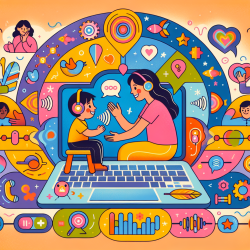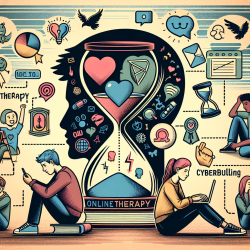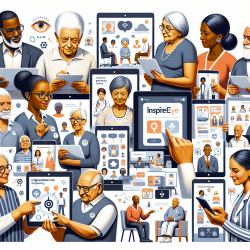The COVID-19 pandemic has revolutionized the delivery of mental health services, necessitating a swift transition to remote consultations. A recent study titled "Stakeholder perspectives and experiences of the implementation of remote mental health consultations during the COVID-19 pandemic: a qualitative study" sheds light on the complexities and outcomes of this shift. Here, we explore how practitioners can enhance their skills by implementing the study's findings or by conducting further research.
Key Findings and Practical Applications
The study, conducted in Ireland, involved semi-structured interviews with mental health providers, service users, and managers. Six themes emerged, highlighting both the advantages and challenges of remote mental health consultations.
1. Convenience and Accessibility
- Remote consultations were found to be convenient, reducing the need for travel and allowing for appointments even when service users were ill or isolating.
- Increased accessibility was particularly beneficial for those with anxiety, depression, or residing in rural areas.
Application: Practitioners should continue to offer remote consultations as an option, particularly for follow-up appointments and for service users who find it difficult to attend in-person sessions.
2. Resource Availability and Training
- Access to resources, guidance, and training were significant facilitators for the successful implementation of remote consultations.
- Training on using platforms and conducting therapeutic work online was crucial.
Application: Continuous professional development and training on remote consultation techniques and platform usage should be prioritized. Engage with professional bodies for up-to-date guidelines and best practices.
3. Digital Divide
- Challenges included service users' lack of access to adequate internet connections and devices.
- Digital literacy was a barrier, particularly for marginalized groups.
Application: Ensure that service users have the necessary digital resources and literacy. Consider providing tutorials or support for using telehealth platforms.
4. Therapeutic Relationship
- Many participants perceived remote consultations as inferior to in-person care, citing challenges in building therapeutic relationships and a lack of non-verbal cues.
Application: Work on strategies to enhance the therapeutic relationship online, such as using video over phone consultations and ensuring both face and body visibility.
5. Workflow Integration
- Compatibility with existing workflows was a significant barrier, particularly in general practice settings.
Application: Evaluate and adapt workflows to integrate remote consultations seamlessly. Consider software that can be easily embedded into existing practice systems.
6. Provider Self-Efficacy
- Providers expressed concerns about managing service user distress and risk remotely.
Application: Equip providers with strategies and protocols to handle crises during remote consultations. Ensure they have access to emergency contact details and back-up communication methods.
Encouraging Further Research
While the study provides valuable insights, it also highlights areas needing further research. For instance, exploring the experiences of service users who opted out of remote consultations could provide a more comprehensive understanding of barriers. Additionally, investigating the environmental benefits of reduced travel for remote consultations could support sustainability efforts in mental health care.
To read the original research paper, please follow this link: Stakeholder perspectives and experiences of the implementation of remote mental health consultations during the COVID-19 pandemic: a qualitative study










